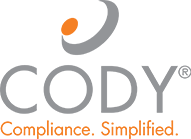How Accurate ANOCs and EOCs can Help Health Plans Retain Members
The Henry J. Kaiser Family Foundation recently published an Issue Brief on its website titled “Medicare Advantage Plan Switching: Exception or Norm?” The brief shared that 11 percent of Medicare Advantage plan enrollees in 2013 voluntarily switched to another plan in 2014. It also addressed various factors that impacted switches to other plans, such as the members’ age, rate increases and coverage changes.
In addition, research showed Medicare Advantage enrollees who voluntarily switched plans were disproportionately in plans with lower quality ratings. Between 2013 and 2014, 14 percent of enrollees in plans with 2 or 2.5 star quality ratings switched plans, while only 3 percent of enrollees in 5 star plans switched. The article states, “These findings suggest that factors related to the star ratings may cause some beneficiaries to switch plans.”
This information provides further motivation for health plans to do all in their power to improve or maintain high quality ratings. Failing to do so could cost health plans members. As an example of the potential impact, a plan with 100,000 members that experiences 11 percent of enrollees switching to another plan has lost a staggering 11,000 members. The good news is, it’s much easier and more affordable to retain members than to recruit new members.
While there are many ways MA plans can improve their quality ratings – and, therefore, retain a higher percentage of members – one area our experts focus on is the importance of accurate Annual Notice of Change (ANOC) and Evidence of Coverage (EOC) documents.
Here are a couple of ways inaccurate and noncompliant ANOCs and EOCs can negatively impact member retention:
Errata Sheets Erode Members’ Confidence
Health plans that send members inaccurate or noncompliant ANOCs or EOCs must then send additional communications – Errata sheets – to correct the misinformation. Errata sheets highlight the health plan’s mistake and can cause confusion and anxiety, none of which instills confidence or satisfaction in members. Sending accurate ANOCs and EOCs the first time will avoid creating this negative perception of the health plan among its members, which can contribute to higher quality ratings and members who stay with their plan.
Poor CAHPS Survey Results can Negatively Impact Star Ratings
Anything a health plan does to weaken its image among its members – including miscommunicating benefits via inaccurate ANOCs and EOCs – has the potential to negatively affect Consumer Assessment of Healthcare Providers and Systems (CAHPS) survey results. CAHPS survey results are a key measure of the health plan’s Star Rating. As the data from the Kaiser Foundation brief implies, lower Star Ratings can contribute to members switching to another plan, not to mention that the health plan misses out on addition funding if it falls below a 4 Star Rating.
Health plans that deliver inaccurate ANOCs and EOCs are subject to costly expenses like printing and mailing Errata sheets and fines from CMS. They’re also at risk of losing their most valuable asset – their members. Health plans that do all they can to ensure their members receive accurate, compliant ANOCs and EOCs are covering one key requirement in the critical effort to retain members.
Our Consulting Services and CodySoft® suite of products help health plans deliver accurate, compliant member communications the first time. Contact us to learn more.
